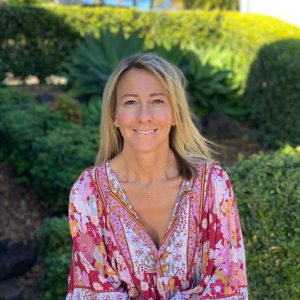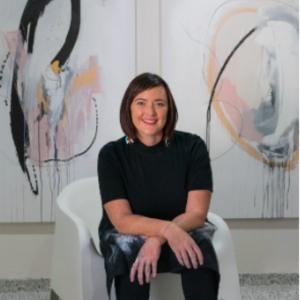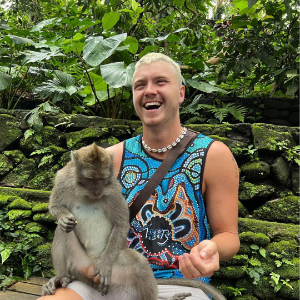






NAWA Wellness
Verified Center
This provider's information has been quality-checked by Recovery.com's Research Team for accuracy and completeness, including center verification through appropriate third-party organizations.
Treatment Focus
This center treats substance use disorders and co-occurring mental health conditions. Your treatment plan addresses each condition at once with personalized, compassionate care for comprehensive healing.
Primary Level of Care
Offering intensive care with 24/7 monitoring, residential treatment is typically 30 days and can cover multiple levels of care. Length can range from 14 to 90 days typically.
Treatment Focus
This center treats substance use disorders and co-occurring mental health conditions. Your treatment plan addresses each condition at once with personalized, compassionate care for comprehensive healing.
Primary Level of Care
Offering intensive care with 24/7 monitoring, residential treatment is typically 30 days and can cover multiple levels of care. Length can range from 14 to 90 days typically.
Private Pay
You pay directly for treatment out of pocket. This approach can offer enhanced privacy and flexibility, without involving insurance. Exact costs vary based on program and length of stay. Contact the center for specific details.
NAWA Wellness
NAWA Wellness
About NAWA Wellness
NAWA Wellness provides bespoke residential treatment for addiction, mental health conditions, chronic stress/burnout, and trauma. They additionally address grief, family breakdowns, and chronic illness. Initial assessments and consultations help their clinicians and support team craft customised care plans for each unique client. NAWA Wellness uses various evidence-based therapies, naturopathy, nutritional guidance, and lifestyle medicine to address conditions at their roots. They offer a short (up to 2 weeks) residential respite for NDIS (National Disability Insurance Scheme) participants as well.
Experienced Clinical Staff Providing Comprehensive Care
NAWA Wellness’ team includes a psychiatrist and naturopath, lifestyle physician, psychotherapists, dietitians, and art therapists. Support staff leads equine psychotherapy, yoga and Qi Gong, on-site fitness, and hypnotherapy sessions. Individualized treatment plans blend evidence-based therapies and wellness services to offer comprehensive and restorative treatment. NAWA Wellness also focuses on 7 Dimensions of Wellness throughout treatment: physical, emotional, intellectual, social, spiritual, environmental, and occupational.
Treating Addiction, Trauma, Mental Health and Dual Diagnoses
NAWA Wellness addresses alcohol addiction, gaming/internet addiction, gambling, cannabis addiction, and more. They treat primary or co-occurring mental health conditions, including anxiety, depression, and trauma. NAWA Wellness additionally addresses chronic stress, chronic illnesses, burnout, grief, family stressors, and more. Individual, group, and family therapy offer appropriate settings to heal and grow. Their evidence-based therapies include:
•Cognitive behavioral therapy (CBT)
•Dialectical behavioral therapy (DBT)
•Motivational interviewing techniques
•12-Step meetings
Luxurious and Restorative Environment
Clients at NAWA Wellness enjoy private bedrooms in a spacious hinterland facility. NAWA Wellness has a heated magnesium-infused pool, a sauna and ice bath, a tennis court, massage room, fitness area, and custom meal plans. After residential treatment, NAWA Wellness provides referrals to outpatient therapy and continued check-ins to keep alumni connected to support. Each client leaves with a developed relapse prevention strategy.

Center Overview
Treatment Focus
This center treats substance use disorders and co-occurring mental health conditions. Your treatment plan addresses each condition at once with personalized, compassionate care for comprehensive healing.
Pricing and Program Length
Estimated Center Costs
The cost listed here ($15,000 AUD per week), is an estimate of program cost. Center price can vary based on program and length of stay. Contact the center for more information. Recovery.com strives for price transparency so you can make an informed decision.
Luxury rehab centers offer a unique blend of luxurious amenities and high-quality treatment. From private suites to gourmet dining, personal trainers to spa treatments, these facilities provide a high level of comfort and discretion.

Meet Your Care Team

Dr. Su Kalava
Consultant Psychiatrist | Medical Director
FRANZCP (Cert Addiction Psych), AFRACMA, MBBS

Dr. Shashi Kalava
Lifestyle Physician | CEO
FACEM, Lifestyle Physician, MBBS, Grad Cert IT, MAICD

Lise
Operations Lead | Senior Guide

Eloisa Cullington
Psychotherapist
Registered Clinical Counsellor (PACFA), BSc(Hons) | GradDipCouns

Georgina Moore (aka Georgee)
Psychotherapist
PACFA, AHPRA

Emma
Art Therapy

Anna Ward
Art Therapy

Suzanne Underwood
Equine Psychotherapy

Angeline Stania
Dietician

Peter St Henry
Dietician

Hayley Brass
Naturopath

Vicky
Yoga Teacher

Sheena
Yoga | Qi Gong

Alex
Health Coach | Personal Trainer | Remedial Massage

Paul Sherriff
Tai Chi

Alice
Massage | Sound Healing

Maddison Mohan
Intake Officer

Elissa Coxen
Support Worker | Fitness Therapist

Alex Johnson (AJ)
Support Worker

Tate
Support Worker

Faye Hartley-Youens
Support Worker | Hypnotherapist




Levels of Care






Your Care Options
Specializations
Co-Occurring Disorders
A person with multiple mental health diagnoses, such as addiction and depression, has co-occurring disorders also called dual diagnosis.
Depression
Symptoms of depression may include fatigue, a sense of numbness, and loss of interest in activities. This condition can range from mild to severe.
Executives
Executive treatment programs typically directly support the needs of people who manage businesses and may provide flexible schedules and office space to allow work during treatment.
Professionals
Busy, high-ranking professionals get the personalized treatment they need with greater accommodations for work, privacy, and outside communication.
Who We Treat
Older Adults
Addiction and mental health treatment caters to adults 55+ and the age-specific challenges that can come with recovery, wellness, and overall happiness.
Adolescents
Teens receive the treatment they need for mental health disorders and addiction, with the added support of educational and vocational services.
Co-Occurring Disorders
A person with multiple mental health diagnoses, such as addiction and depression, has co-occurring disorders also called dual diagnosis.
Executives
Executive treatment programs typically directly support the needs of people who manage businesses and may provide flexible schedules and office space to allow work during treatment.
Young Adults
Emerging adults ages 18-25 receive treatment catered to the unique challenges of early adulthood, like college, risky behaviors, and vocational struggles.
LGBTQ+
Addiction and mental illnesses in the LGBTQ+ community must be treated with an affirming, safe, and relevant approach, which many centers provide.
Men and Women
Men and women attend treatment for addiction in a co-ed setting, going to therapy groups together to share experiences, struggles, and successes.
Approaches
Evidence-Based
A combination of scientifically rooted therapies and treatments make up evidence-based care, defined by their measured and proven results.
Holistic
A non-medicinal, wellness-focused approach that aims to align the mind, body, and spirit for deep and lasting healing.
Personalized Treatment
The specific needs, histories, and conditions of individual patients receive personalized, highly relevant care throughout their recovery journey.
Twelve Step
Incorporating spirituality, community, and responsibility, 12-Step philosophies prioritize the guidance of a Higher Power and a continuation of 12-Step practices.
Wellness
Wellness philosophies focus on the physical, mental, and spiritual wellness of each patient, helping them restore purpose with natural remedies.
Therapies
1-on-1 Counseling
Patient and therapist meet 1-on-1 to work through difficult emotions and behavioral challenges in a personal, private setting.
Meditation & Mindfulness
A practiced state of mind that brings patients to the present. It allows them to become fully aware of themselves, their feelings, and the present moment.
Art Therapy
Visual art invites patients to examine the emotions within their work, focusing on the process of creativity and its gentle therapeutic power.
Weight Loss
Programming designed to promote sustainable health and wellness through personalized nutrition and fitness plans.
Equine Therapy
Guided interactions with trained horses, their handler, and a therapist can help patients improve their self-esteem, trust, empathy, and social skills.
Family Therapy
Family therapy addresses group dynamics within a family system, with a focus on improving communication and interrupting unhealthy relationship patterns.
Horticultural Therapy
Gardening can be both meditative and inspiring. This therapy encourages social, emotional, and physical recovery.
Interpersonal Therapy
This brief and structured therapy addresses present relationships and improves overall communication at work, home, and other social settings.
Conditions We Treat
Pornography Addiction
A person with a porn addiction is emotionally dependent on pornography to the point that it interferes with their daily life and relationships.
Grief and Loss
Grief is a natural reaction to loss, but severe grief can interfere with your ability to function. You can get treatment for this condition.
Personality Disorders
Personality disorders destabilize the way a person thinks, feels, and behaves. If untreated, they can undermine relationships and lead to severe distress.
ADHD, ADD
ADHD is a common mental health condition caused by dopamine imbalance. Common symptoms include inattention, hyperactivitiy, and impulsivity.
Anxiety
Anxiety is a common mental health condition that can include excessive worry, panic attacks, physical tension, and increased blood pressure.
Bipolar
This mental health condition is characterized by extreme mood swings between depression, mania, and remission.
Burnout
Burnout entails mental and physical exhaustion, and leads to a severe lack of fulfillment. This condition is often caused by overwork.
Chronic Pain Management
Long-term physical pain can have an affect on mental health. Without support, it can also impact your daily life and even lead to addiction.
Substances We Treat
Alcohol
Using alcohol as a coping mechanism, or drinking excessively throughout the week, signals an alcohol use disorder.
Benzodiazepines
Benzodiazepines are prescribed to treat anxiety and sleep issues. They are highly habit forming, and their abuse can cause mood changes and poor judgement.
Chronic Relapse
Consistent relapse occurs repeatedly, after partial recovery from addiction. This condition requires long-term treatment.
Co-Occurring Disorders
A person with multiple mental health diagnoses, such as addiction and depression, has co-occurring disorders also called dual diagnosis.
Cocaine
Cocaine is a stimulant with euphoric effects. Agitation, muscle ticks, psychosis, and heart issues are common symptoms of cocaine abuse.
Drug Addiction
Drug addiction is the excessive and repetitive use of substances, despite harmful consequences to a person's life, health, and relationships.
Ecstasy
Ecstasy is a stimulant that causes intense euphoria and heightened awareness. Abuse of this drug can trigger depression, insomnia, and memory problems.
Heroin
Heroin is a highly addictive and illegal opioid. It can cause insomnia, collapsed veins, heart issues, and additional mental health issues.
Psychedelics
Hallucinogenic drugs—like LSD—cause euphoria and increased sensory experiences. When abused, they can lead to depression and psychosis.
Languages
Aftercare
Care Designed for Your Needs
Personal Amenities
Amenities
Special Considerations
Executive Program
Addiction and mental health treatment for executives typically involves high discretion, greater technology access, and more private, 1-on-1 care.
Flexible technology policies
Centers with flexible technology policies allow professionals to stay in touch with work and give patients a greater sense of connection and normalcy.
LGBTQ group
Group therapy unites LGBTQ+ patients in a safe and culturally competent setting, encouraging peer support under the expert leadership of a therapist.
Young Adults Program
Programs for young adults bring teens 18+ together to discuss age-specific challenges, vocational and educational progress, and successes in treatment.
Activities
Yoga
Yoga is both a physical and spiritual practice. It includes a flow of movement, breathing techniques, and meditation.
Off-Site Activities
Yoga
Yoga is both a physical and spiritual practice. It includes a flow of movement, breathing techniques, and meditation.
Off-Site Amenities
What people are saying
Treatment
5.0
Accommodations
5.0
Food & Nutrition
5.0
Value
5.0
Anonymous
Treatment in 2024 • (7 days) • Reviewed 03/13/24
Former Client
•Health Professional






